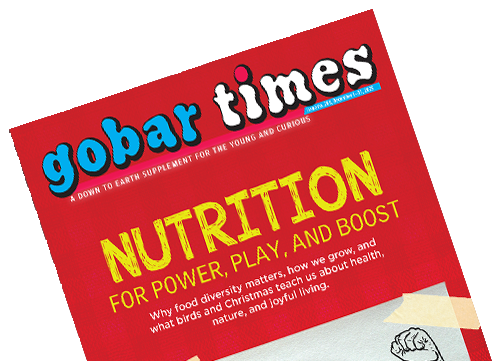
Meet the students turning kayaking into a weekly mission to collect plastic waste and keep the backwaters clean — one paddle at a time.

Plastic pollution creates an evolutionary trap for young sea turtles, says a new study. The study is done by researchers from the University of Exeter, UK. The study included 121 sea turtles from five of the world’s seven species: green, loggerhead, hawksbill, olive ridley, and flatback. They found plastic inside juvenile turtles along both the east and west coasts of Australia. Sea turtles usually hatch on beaches and spent their early years traveling on ocean currents...

A fascinating account by a passionate marine environmentalist explaining why seaweeds are environmentally the most sustainable foods on our planet. ******************************* Hi! Do you guys know what a seaweed is? It’s like the spinach of the sea. You might have eaten it in a roll of sushi or a bowl of green salad or a soup. But most likely, you wouldn’t have tasted it at all. That’s because in India, we don't have a popular tradition of seaweeds. But that's about to change—I believe as the founder of a seaweed food company called The Good Ocean...

Deep dive into the jungles undersea and gather some fascinating facts about the wonder world of seaweeds along India’s coastline.

“Such a beautiful place, to be with friends”. Fans of the Harry Potter film series will remember this line, uttered in one of the most heart-breaking scenes of the saga by arguably the most beloved character of them all, Dobby the house-elf. As the adorable elf breathes his last in the arms of his friend and hero, Harry Potter, he inadvertently invites viewers to marvel at the vast, expansive beach that then becomes his gravesite. Twelve years after...

What are Micro-Plastics? Micro-plastics have not been defined in particular. They are just tiny particles that result from the disintegration of bigger plastic materials. However, most researchers say that any plastic smaller than 5 millimetres in size is a micro-plastic. Hence, these are really, really teeny-tiny! Plastics are made up of polymers, which are derived from fossil fuels. A whole lot of chemicals are added to the polymers—close to 10,000—to ensure that a given plastic has the desired properties...

A walk on the beach is an insight not just into our leisure but also into our addiction to plastic. More than 80 lakh tonnes of plastic is dumped into the oceans every year. Sea creatures often mistake plastic for food and die because of it. Sea turtles are probably the most gullible creatures of the sea. Why? Well, that’s because they are likely to confuse plastic floating in the ocean for food and eat it, says a recent article published in the Science News magazine. However, in the poor creature’s defense, they are not the ones filling our oceans with plastic...

